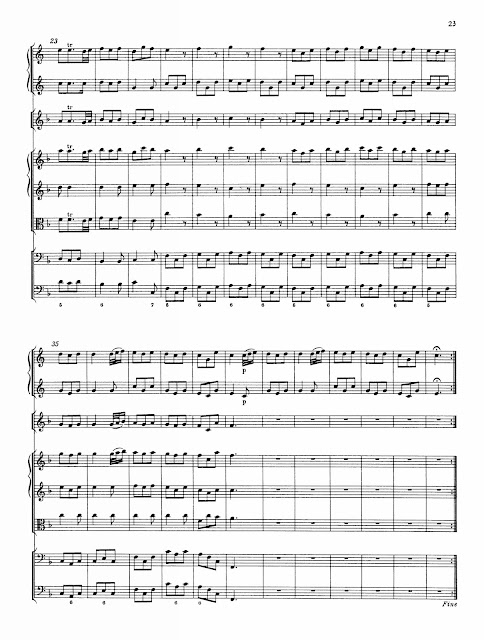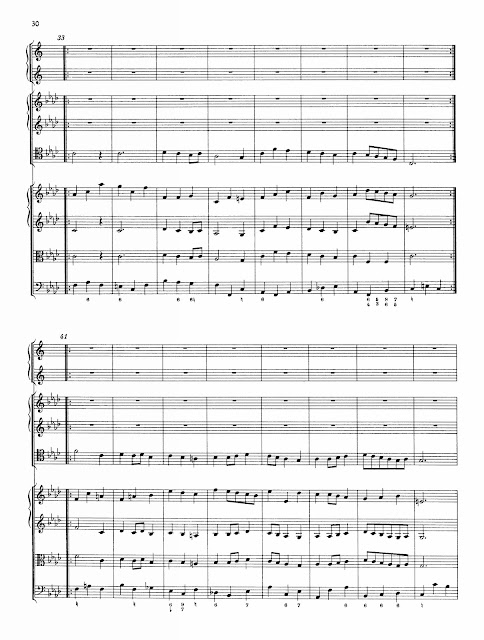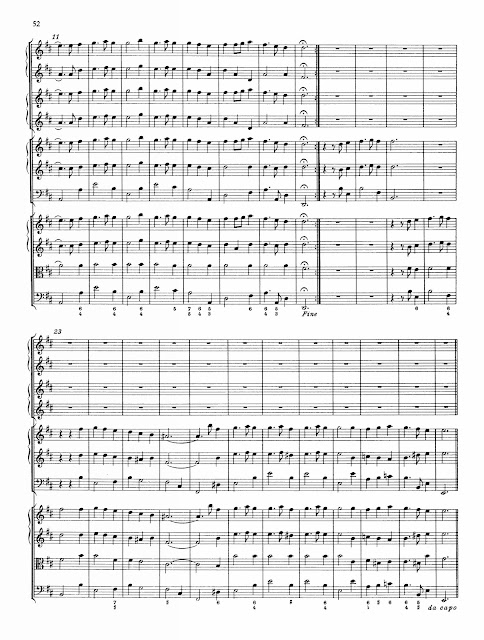DX. HANDEL, George Frideric (1685-1759)
It was not without major difficulties of succession that George I become king in 1714. His son -- who became The Prince of Wales upon his father's coronation, and later became George II -- did not get along with papa.
If one reads the details in the above links, one will discover that the music that is the subject of this post played a very important part in the twisted history of these personages.
George I was eager to garner public support as his son was constantly irritating him. Thus -- thinking big -- he commissioned Handel to write this music which would be played on river barges on the Thames, from Whitehall up river to Chelsea, where they would then have a lavish supper.
His Majesty liked the piece so well, that it was repeated three times during the trip. The Prince and Princess of Wales were notably absent from the festivities.
If one reads the details in the above links, one will discover that the music that is the subject of this post played a very important part in the twisted history of these personages.
George I was eager to garner public support as his son was constantly irritating him. Thus -- thinking big -- he commissioned Handel to write this music which would be played on river barges on the Thames, from Whitehall up river to Chelsea, where they would then have a lavish supper.
His Majesty liked the piece so well, that it was repeated three times during the trip. The Prince and Princess of Wales were notably absent from the festivities.
**
Naturally, there is confusion over what was and was not included in the original Water Music -- but these three suites constitute the music that has been handed down to us over the centuries:
Suite #1 in F Major, HWV 348
1. Ouverture (Largo -- Allegro)
Naturally, there is confusion over what was and was not included in the original Water Music -- but these three suites constitute the music that has been handed down to us over the centuries:
Suite #1 in F Major, HWV 348
1. Ouverture (Largo -- Allegro)
The stately Largo opening, with its four-note motif (three 16ths-1/4-note) is followed by an exciting Allegro:




2. Adagio e staccato
D minor, with a plaintive oboe above simple string accompaniment:
D minor, with a plaintive oboe above simple string accompaniment:
3. (Allegro) -- Andante -- (Allegro da capo)
Perhaps one of the most recognizable sections of the suites, this glorious Allegro features two horns in a call-and-response with the strings.
4. (Menuet)
The horns get a few moments in this Menuet with a Trio sans horns in D Minor:
5. Air
Another recognizable movement. This cadence to the dominant is particularly moving:
Another recognizable movement. This cadence to the dominant is particularly moving:
6. Menuet
Opening with solo horns, followed with a tutti, and a Trio in the parallel minor (F):
7. Bourrée
Repeated three times with the indicated orchestration:
- Strings and continuo
- A wind trio (2 oboes, bassoon)
- The full ensemble
8. Hornpipe
As above, performed three times by the same combination:
9. (Andante)
D Minor, winds and strings alternately playing separately and then together. Handel ends things with a serious Adagio:


D Minor, winds and strings alternately playing separately and then together. Handel ends things with a serious Adagio:


10. (Ouverture)
Trumpets are now added (which surely would have been included on the barge!), but there is no timpani part indicated, and the account by the Russian London resident, Friedrich Bonet does not mention them. The occasional use of the violins as a high "bass" to the trumpets strongly suggests that Handel wrote the music without any expectations that drums would be added; they would not have fitted easily on to the musicians' barge. Nevertheless, they are used in this performance:
Another memorable movement. Notice how Handel divides the music into bars of five, rather than the usual four -- that extra bar adds suspense:
12. (Menuet)
From HMV 530. A lovely flute solo:
A sprightly dance in two sections:
14. Lentement
A da capo stately slow movement, perhaps with the aim of assisting digestion:
15. Bourrée
16. Menuet
17. (Andante)
19. Menuet
































No comments:
Post a Comment